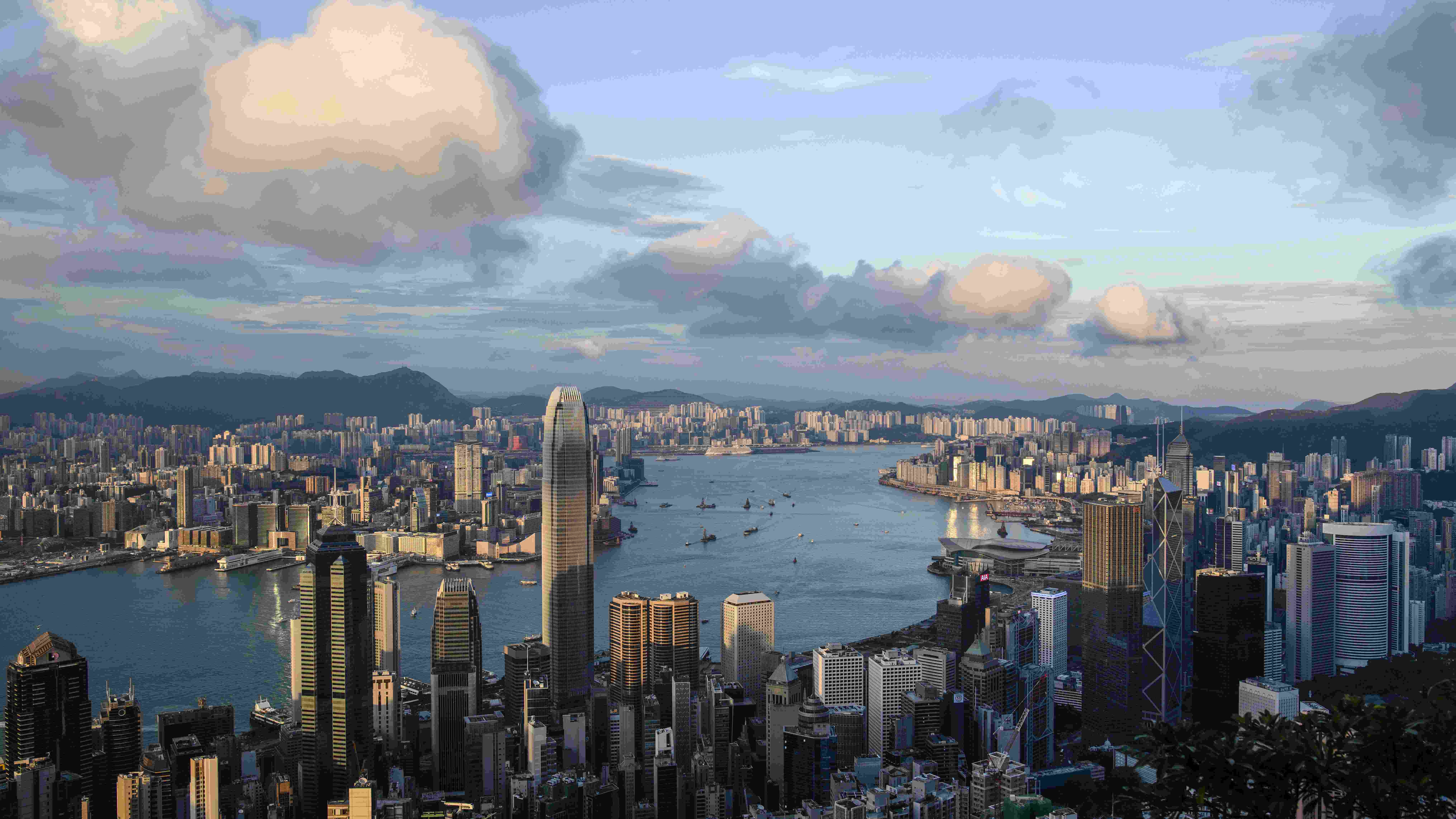China’s economy has accelerated in recent years, with the rise in housing prices to match. According to the Hurun Report, China is home to 21 of the world’s 50 fastest growing property markets, and cities like Hong Kong and Shanghai perennially top the list of the
World’s Most Expensive cities to live in.
Most people living in China’s megacities have moved there with hopes of seizing the opportunity for economic advancement. This decision often comes with its own set of personal tradeoffs. CGTN talked to two people – in Shenzhen and Hong Kong – about their decision to move and the compromises they’ve made to be able to live in some of the world’s most expensive cities.
Shenzhen: With opportunity comes the loss of ‘a sense of belonging’
Today, Shenzhen is a sprawling metropolis, a city that has transformed from a rural village to a major manufacturing base in less than 40 years. It’s home to some of China’s best-known companies including Tencent, ZTE, and Huawei.
Designated as China’s first Special Economic Zone (SEZ) in 1979, which allowed foreign investment and private enterprises into the area, Shenzhen has been one of the world’s fastest growing cities ever since.
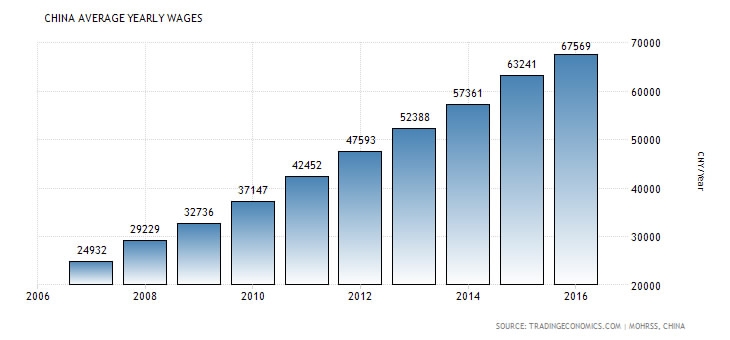
According to data from the Ministry of Human Resources and Social Security, the average person in China takes home 67,569 yuan a year, or just over 10,000 US dollars / image source: tradingeconomics.com
According to data from the Ministry of Human Resources and Social Security, the average person in China takes home 67,569 yuan a year, or just over 10,000 US dollars / image source: tradingeconomics.com
Part of the influx of people looking for economic opportunity, 30-year-old Chen Zhuo moved to the city in 2012. By all common standards, the move has worked in her favor. She makes well above China’s average annual salary of 67,569 yuan (just over 10,000 US dollars) and more than double the annual salary of 106,704 yuan (about 16,000 US dollars) for residents of Shenzhen. She owns her own home and is rapidly advancing in her career as a lawyer.
After living in Wuhan for nine years, Chen says Shenzhen has several key advantages for herself and her family. "The city is innovative… and the environmental quality is good. My children will receive a better education here."
With all this, she feels there’s only one thing missing: a sense of community. And herein lies the paradox of living in a rapidly growing city – with infinite possibility comes the loss of freedom in terms of time, stress and relationships.
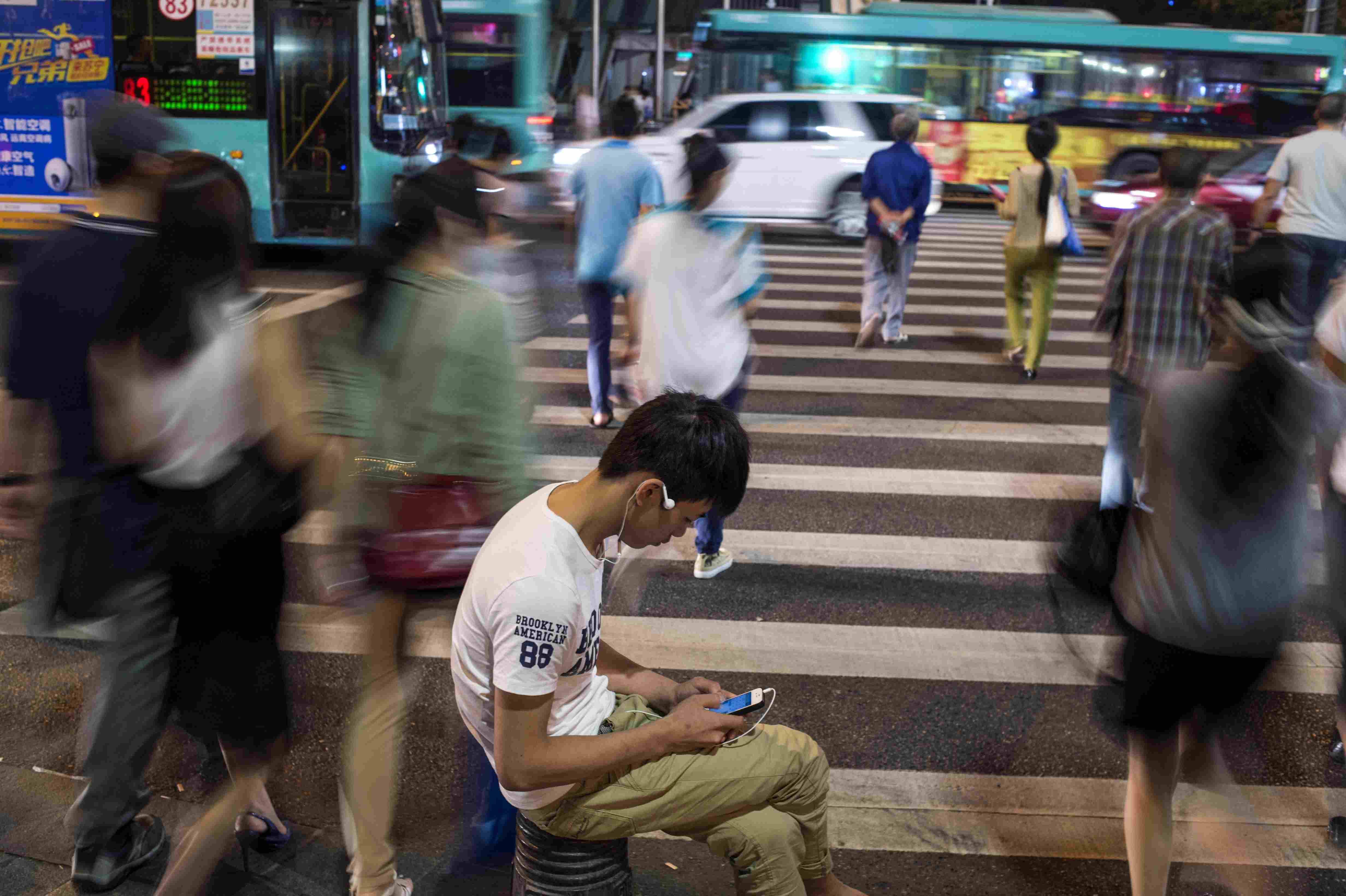
A busy street in Shenzhen/ photo source: AFP
A busy street in Shenzhen/ photo source: AFP
The pressure to make money in this environment means that "everyone is busy, including me. My upstairs neighbors and I don't even know each other after being in the same neighborhood for years. Even when we are on holidays, we are accustomed to staying at home, playing games, reading books or listening to songs instead of spending time with acquaintances."
For Chen, this shift from what she calls "an acquaintance society to a stranger society" means that "very few relationships are a lifetime thing."
Growing up, her parents had a notebook recording the amount of money given to their family during significant life moments – a tradition known in China as "red packets". When a significant moment occurred in other’s families, her family would return the favor. This reciprocity was “a matter of a lifetime, involving everyone in a small town. But now that I’m in a big city, I rarely use this kind of notebook.”
Hong Kong: Adapting to a new culture
With the eighth largest stock market in the world, Hong Kong has long been one of the world’s leading financial centers. It’s also been one of China’s major ports and the regional center for international businesses.
The Economist Intelligence Unit’s 2017 report on the most expensive cities in the world ranked Hong Kong second on the list, just behind Singapore. According to Expatistan.com, the average monthly rent for a 900 square foot apartment in an expensive area was 37,587 HK dollars, about 4,800 US dollars.
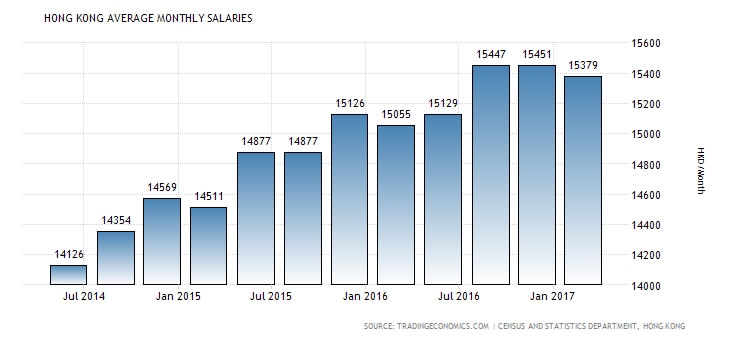
According to data from the Hong Kong Census and Statistics Department, the average monthly salary in Q1 2017 in Hong Kong was 15,379 HK dollars (almost 2,000 US dollars), a dip from the year before. /image source: tradingeconomics.com
According to data from the Hong Kong Census and Statistics Department, the average monthly salary in Q1 2017 in Hong Kong was 15,379 HK dollars (almost 2,000 US dollars), a dip from the year before. /image source: tradingeconomics.com
According to the Economist Intelligence Unit, the average price of a loaf of bread in Hong Kong is 4.61 US dollars. The average price for a bottle of wine is 15.72 US dollars and 1 liter of petrol costs an average of 1.73 US dollars.
Are the astronomical prices worth the benefits of living in a city like Hong Kong? For 31-year-old Tracy (who preferred to be identified by her given name only), the answer isn’t clear. Tracy moved to the city almost 10 years ago and currently makes almost three times the average monthly salary in Hong Kong.
Despite her position, she currently rents her apartment and remarks that the most noticeable change she’s seen in her years here is the 'soaring housing prices". Rental prices are always increasing, with her apartment expenditure going up about five percent yearly.
Yet, the city has a distinct advantage; it comes with “tons of jobs”. She mentions that she feels safe here, “loving the security and the sustainable public services” that Hong Kong provides.
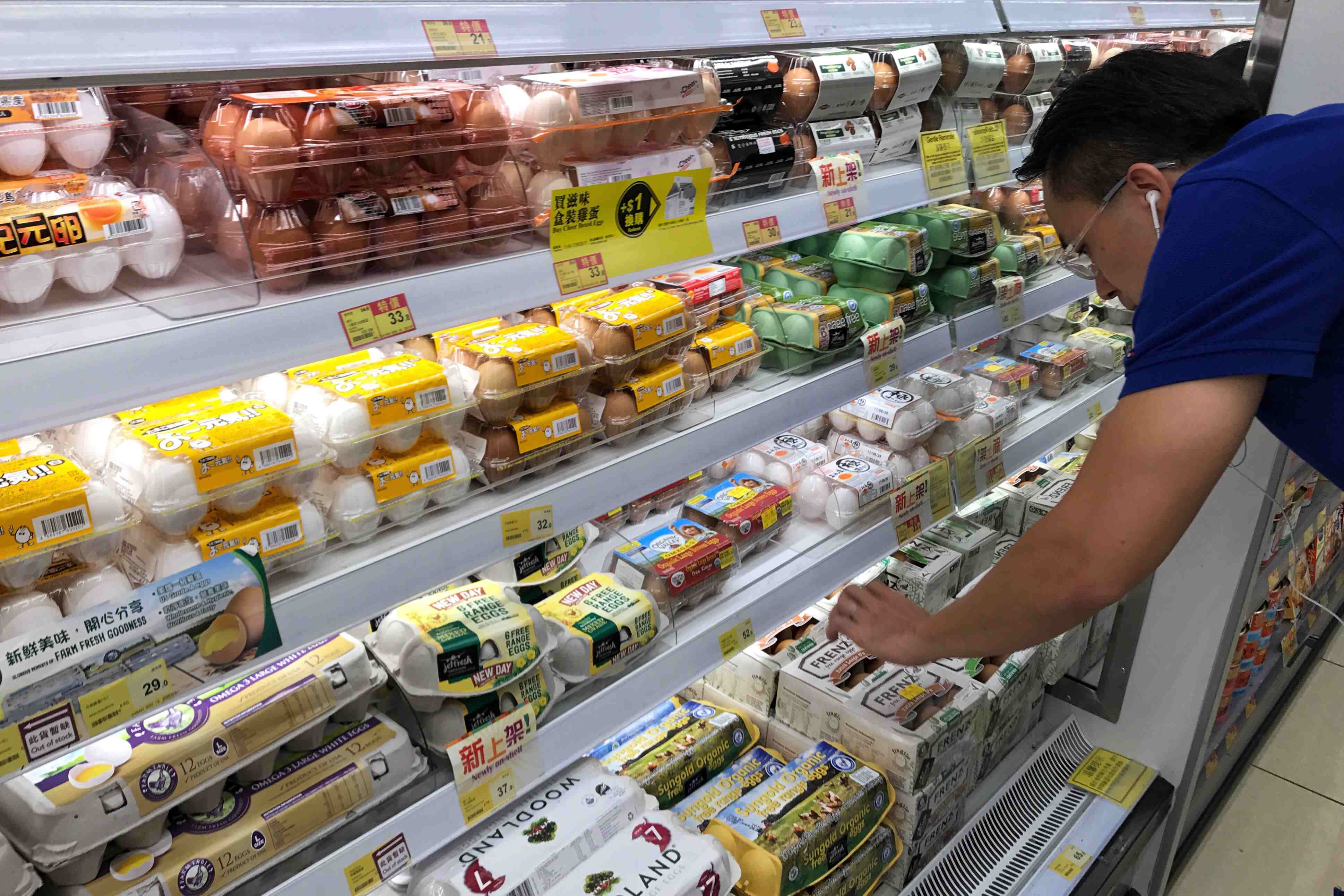
The average price of a dozen eggs in Hong Kong? Almost 4.50 US dollars, according to Expatistan.com/ source: AFP
The average price of a dozen eggs in Hong Kong? Almost 4.50 US dollars, according to Expatistan.com/ source: AFP
The one big challenge? She misses home – sometimes feeling like a fish out of water describing herself as "a minority in [Hong Kong] society."
When asked if she felt like Hong Kong was her home, her response was simply, "No". But she also said she knew that she would miss Hong Kong if she ever decided to move away.

